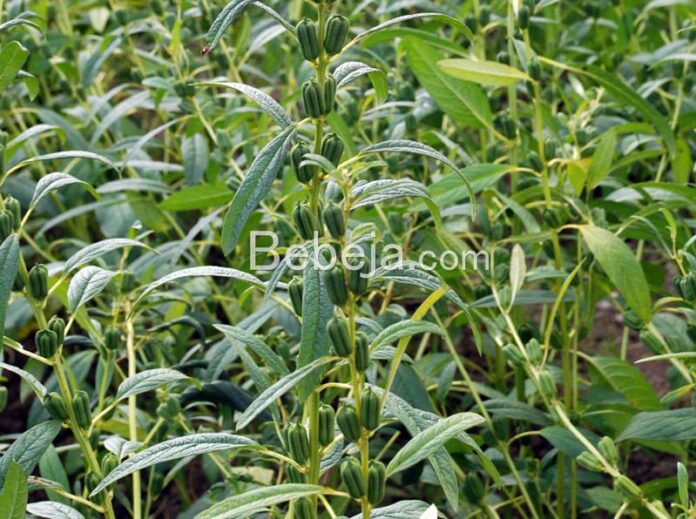The sesame plant (Sesamum indicum) produces sesame seeds that have economic value, among others, as food decorations and aromatic vegetable oil. The centers of sesame crop development in Indonesia are in East Java (Ngawi and Nganjuk) and Central Java (Klaten, Sragen, and Sukoharjo). The sesame crop is cultivated in paddy fields after the rice harvest with low productivity of around 800-900 kg/ha and a selling price of IDR17,000-IDR18,000/kg.
Currently, researchers at the Indonesian Sweetener and Fiber Crops Research Institute in Malang, East Java, are developing superior sesame varieties, namely Winas-1 (winas = national sesame) and Winas-2. Both varieties have the same parent, the Sumberrejo-1 variety released in 1997. The variety has a high productivity of up to 1.6 tons/ha and is adaptive to dry land and paddy fields.
The production potential of Winas-1 reaches 2.2 tons/ha with an average production of 1.4-1.5 tons/ha. The seed coat of Winas-1 is white-brown, flowering at 36 days and ready for harvest at 97-105 days. When flowering plants can reach a height of 113-146 cm with a fruit length of 2.22-2.5 cm and 4 columns, aka star fruit 4.
The weight of 1,000 seeds is 3.17 grams with an oil content of 50.88%. Winas-2 has a production potential of 1.8 tons/ha with an average of 1.2-1.4 tons/ha. The variety has a shorter stem, measuring 105-138 cm, and is ready to be harvested at 61-65 days of age.
Seed and maintenance requirements for both varieties are low and easy. For 1 hectare, approximately 6 kg of seeds are required at a price of about Rp25,000/kg. For sesame cultivation, you will need approximately 200 kg of NPK compound fertilizer, 150 kg of urea, and 250 kg of manure.
